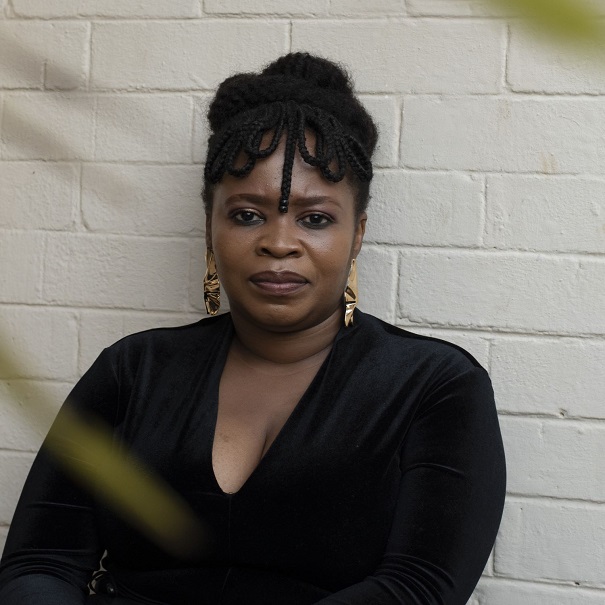Broadcasting
How Have Podcasts Contributed to the Rise of Afrobeats?

By Ncebakazi Manzi Podcast Manager: Spotify Sub-Saharan Africa
The rise of Afrobeats over the past decade or so has been nothing short of remarkable. From the streets of Nigeria and Ghana, it has become a global phenomenon, with some of the world’s biggest artists collaborating with Afrobeats icons and emerging artists alike.

In a sign of how rapid the ascent of Afrobeats has been, Spotify recently held events in Nigeria celebrating 13 billion streams of the genre. The growth of Afrobeats is unlikely to slow down anytime soon either, especially as streaming continues to grow across Africa.
According to research firm Statista, the continent’s streaming market is set to grow from US$362.5 million this year to US$513.2 million in 2027. Combine that expansion with significant diaspora populations and you have the ingredients for further inter-continental pollination and growth.
But there are other forces advancing the growth of Spotify. Podcasts in particular are playing an increasingly important role. That’s true not just on the African continent, but around the world too.
Africa’s podcast growth
Before looking at how podcasts and music streaming services have complemented each other to drive Afrobeats’ growth, it’s worth providing some additional context around the evolution of podcasts in Africa.
Thanks to rising smartphone adoption and increasingly affordable connectivity, the medium has seen significant growth across the continent. In fact, podcast listenership in Nigeria grew by an astonishing 222% between 2021 and 2022.
Unsurprisingly, it’s not just listenership that’s grown but production too. While it’s difficult to get an exact idea of how many African-produced podcasts there actually are, you only need to open your podcasting app and type a few continent and country-specific search terms in to see how much choice there is today. These podcasts cover a growing number of niches too, including Afrobeats.
At the recent Afrobeats celebration events that were held in Lagos, Nigeria, the first day featured Spotify for Podcasters sessions which were focused on empowering creators and showcasing top podcasts. These events included a workshop on the basics of podcasting followed by a panel discussion with Nigerian podcasters. Next were live podcast recordings of a Spotify for Artists Masterclass on “Afrobeats Intelligence” and “I Said what I Said” featuring Afrobeats artists, Pheelz and Nissi. The day ended with a surprise performance by Pheelz bringing Afrobeats lovers and the expanding community of podcasters together.
Spreading the word about Afrobeats
There are a number of high quality podcasts with an Afrobeats focus that not only highlight tracks from the genre but also delve into meaningful discussions related to the music.
Take Afrobeats Intelligence, for example. Founded by award-winning Nigerian music journalist Joey Akan, the podcast is a spin-off of his newsletter of the same name. And while it may be rooted in Nigeria, the podcast celebrates creative excellence from across the African continent.
Terms and Conditions by Pulse, meanwhile, dissects worthy culture-related conversations with insights and varying perspectives. Hosted by Neo Akpofure, ex BBNaija housemate, Oyindasola Chekwa ESQ, a lifestyle influencer and content creator and Sayo AK an artist, planner, and entrepreneur. The podcast was launched in 2021 and also provides invaluable insights into the music industry from people who’ve been in the thick of it.
An older offering comes in the shape of Loose Talk, hosted by the trio of veteran media and music journalists Osagie Alonge, Steve Dede, and Ayomide Tayo. Founded in 2016, when the African podcasting scene was still in its infancy, the show discusses all things music and culture. After a three year hiatus, Loose Talk started putting out new episodes this year.
Complementary mediums
That these and other shows have built sustainable offerings not only demonstrates the hunger to learn more about Afrobeats as a genre but also their potential to grow the genre’s popularity both in Africa and around the world. That shouldn’t be too surprising either. Being audio-driven mediums primarily, podcasts and music can be incredibly complementary mediums.
This ability to act as a promotional vehicle is underlined by our own Spotify data. It shows that the country with the highest number of Afrobeats podcast listeners is the UK, beating out Nigeria, with the US in third spot.
For listeners, it’s easy to imagine how this symbiosis between streaming and podcasts comes about. They might have a friend recommend an Afrobeats artist or have their curiosity sparked by a song featured on the soundtrack for a movie or series. Once they’ve listened to those songs, they’ll likely want to find out more about the artist or to discover other, similar artists.
Podcasts offer them a convenient way of doing that (especially if they can access said podcasts from the same app), while also providing insights into the genre and news on the latest artist releases, collaborations, and developments.
Afrobeats and beyond
While Afrobeats has undoubtedly been one of the biggest beneficiaries of Africa’s podcasting explosion, there is no doubt that other genres are benefitting and will benefit in the future too. As more and more African producers launch their own podcasts and smartphone penetration and connectivity continue to grow across the continent, that symbiotic influence will only keep growing.
Broadcasting
US invests $115m in counter-drone tech for World Cup security


Drone
The US Department of Homeland Security (DHS) will invest $115 million in counter-drone technology to safeguard the 2026 FIFA World Cup and events marking America’s 250th independence anniversary, creating a dedicated office for rapid drone system deployment.
Homeland Security Secretary Kristi Noem described drones as “the new frontier of American air superiority,” stressing the need to counter threats from drug cartels using unmanned aircraft for smuggling and surveillance, alongside incidents like a 2025 NFL stadium drone flight and 2024 New Jersey sightings.
The funding supports 11 World Cup host cities expecting over one million visitors, building on FEMA’s $250 million grants to those states and addressing risks heightened by cartels’ advancing tech, including a reported FBI tracking plot in Mexico.
DHS has conducted over 1,500 counter-drone missions since 2018, with the new Program Executive Office accelerating acquisitions amid President Trump’s border security push.
Broadcasting
Youth Talent Takes Center Stage as T2 Ignites High-Octane Rap Battles @ Carnival Calabar

The energy at the Carnival Calabar Music Concert reached a new high as T2 introduced a first-ever rap battle platform, giving young Nigerians an electrifying stage to showcase their talent, creativity, and self-expression while competing for exciting prizes.

Held at the U.J. Esuene Stadium, the activation blended pulsating music, vibrant culture, and youthful energy into a dynamic celebration that kept thousands of carnival-goers fully engaged from start to finish.
Eight fearless contestants stepped into the spotlight, going bar for bar in an intense lyrical showdown. Rappers fused local languages, pidgin, and sharp punchlines, creatively weaving the T2 brand into their verses.
Anchored by the energetic hosting duo MC Double I and MC Princess, the rap battles thrilled over 16,000 attendees, including the Governor of Cross River State, Senator Bassey Otu, delivering an unforgettable showcase of youth talent and cultural expression.
With prizes including fridges, gas cookers, sound systems, and airtime top-ups, the competition remained fierce throughout the night. After two high-energy rounds narrowed the field to a five-man final duel, Emmanuel Eye emerged as the overall winner, taking home the grand prize — a fridge.
“I never expected this at all,” Emmanuel said. “I came to the concert like anyone else, and hearing about the T2 rap battle was a surprise. When I got the chance to perform, I just went for it. Being named the overall winner is amazing, and I’m grateful to T2 for creating this platform to showcase our talent.”
Beyond the stage performances, T2’s presence added a digital layer to the carnival experience. As part of its role as Digital Technology Partner of Carnival Calabar, the brand introduced the MyT2 App as a lifestyle companion, while also enabling line reactivations, airtime top-ups, and instant rewards for hundreds of attendees, blending technology seamlessly into the live celebration.
Commenting on the activation, Chinelo Manefo, Specialist, Events and Sponsorship at T2, said:
“The energy from both the rappers and the crowd was incredible. This platform reflects exactly what T2 aims to create — a celebration of youth, creativity, and culture, enhanced by technology that connects people and experiences. Seeing the audience so immersed shows how music and performance can empower the next generation.”
The Carnival Calabar Music Concert, headlined by Tiwa Savage, Timaya, and top local performers, was further energized by T2’s interactive rap battle platform. By blending music, culture, youth expression, and digital innovation, T2 reinforced its commitment to championing Nigeria’s next generation, giving young creatives a stage to shine while enriching how they experience the festival.
Broadcasting
Aig-Imoukhuede Foundation Wrapped Up 2025 with Real Change in Governance, Health, Media Across Africa

Aig-Imoukhuede Foundation has announced its 2025 achievements, marking a year of accelerated impact, systemic reforms and innovation in public leadership and service delivery across Africa.

Aig-Imoukhuede Foundation
A statement issued on Wednesday in Lagos said the foundation strengthened governance, improved primary healthcare, drove digital transformation and elevated media’s role in promoting public sector accountability.
It said the AIG Public Leaders Programme (PLP) trained 72 public sector leaders from Nigeria, Egypt, Tanzania, Cameroon, Zambia, Malawi and Kenya—its fastest growth to date—bringing the alumni network to 309.
These alumni are driving 237 reform projects to enhance public institutions, from faster decision-making to greater transparency, with nine promoted to higher roles for their contributions.
On civil service modernisation, the foundation accelerated digitalisation at the Office of the Head of the Civil Service of the Federation (OHCSF), streamlining 19 processes and achieving a 75 per cent increase in work speed through automated workflows.
It also trained over 400 officials from the Federal Ministry of Justice, Federal Civil Service Commission and Federal Ministry of Innovation, Trade and Investment in digital skills to support the FCCSIP 25 initiative and ongoing digital rollouts.
In healthcare, the Adopt-A-Healthcare-Facility Programme renovated four primary healthcare centres in Edo State, boosting antenatal visits by 73 per cent, immunisation coverage over 100-fold and fully vaccinating 554 children, while supporting 6,788 patients.
The foundation recognised 18 outstanding public servants with ₦500,000 each via the Emily Aig-Imoukhuede Endowment Awards and received a partnership award from the OHCSF for civil service reform efforts.
To empower media, it trained 50 journalists from top Nigerian media houses in impact storytelling, data analysis, visual and ethical reporting to better inform citizens on public sector changes.
Over five years (2021–2025), the foundation invested £2.6 million in PLP, saved ₦2.38 billion for the public sector through capacity building, trained 1,500+ civil servants, upskilled 660 digitally, trained 40 permanent secretaries and awarded 33 scholarships driving seven policy changes.
Other milestones include digitising 5,000 files, automating 333 processes, a 61 per cent efficiency gain, 60 per cent digital file creation at OHCSF, 128 excellence awards, 116 process reforms, 23 advocacy projects, 25 capacity initiatives, 18 podcasts, four healthcare articles, three policy papers, 23 adopted PHCs (four renovated) and 878+ fully immunised children aged 0–9 months.
Executive Vice Chair, Mr Aigboje Aig-Imoukhuede, said: “2025 was a year of real, measurable impact. From training hundreds of public servants to improving healthcare, helping ministries go digital, and equipping journalists to tell stories that matter, our work is making governments work better for citizens and communities across Africa.”

 E-Financial3 days ago
E-Financial3 days agoPaystack Expands Beyond Payments into Banking

 E-Financial3 days ago
E-Financial3 days agoSEC Partners Police in Nationwide Crackdown on Ponzi Schemes, Crypto Frauds

 General News3 days ago
General News3 days agoEFCC to Use Space Technology to Boost Asset Tracking, Investigations

 E-Business3 days ago
E-Business3 days agoNigeria Targeted with 4,622 Cyber-attacks Per Week in December 2025

 E-Financial3 days ago
E-Financial3 days agoFG Halts Tax Guidelines Amid Uncertainty Over Final Laws – Oyedele

 E-Financial3 days ago
E-Financial3 days agoPaystack Buys Microfinance Bank, Enters Nigeria Banking Arena

 News3 days ago
News3 days agoFG Directs Banks, Fintechs to Remit VAT on Service Fees

 E-Financial2 days ago
E-Financial2 days agoSEC Hikes Minimum Capital Requirements for Market Operators After a Decade


























